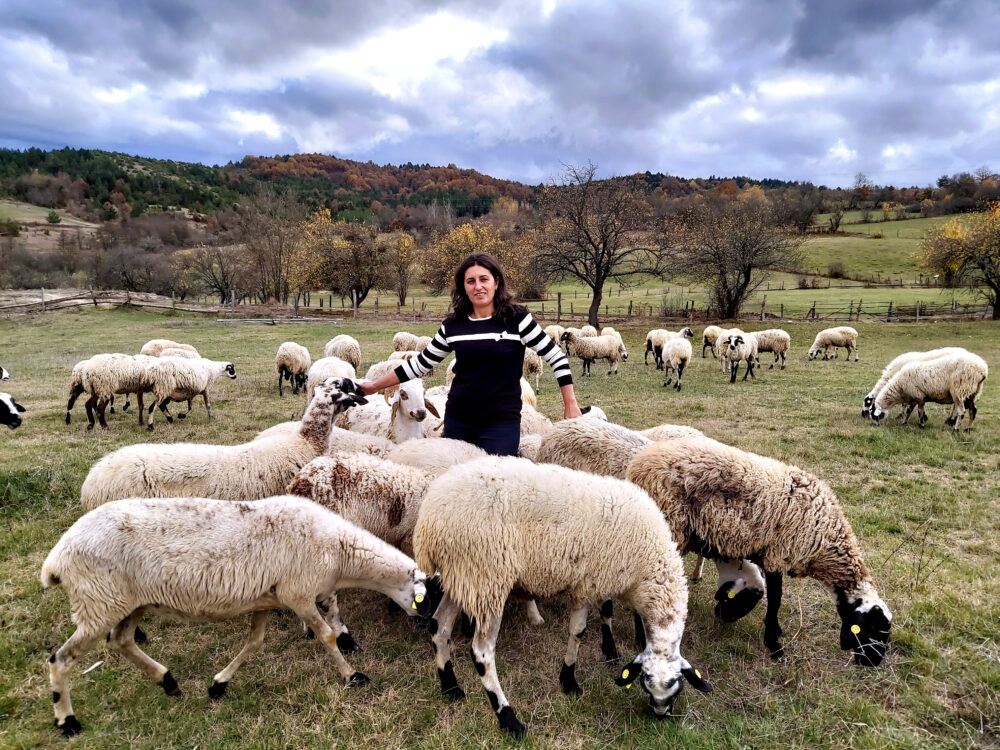Making markets work for the poor in North Macedonia
Date
April 13, 2021
Vangelina Parmachka, dairy farmer from the village of Budinarci in North Macedonia. Photo by Ljiljana Mitevska
“There is a need for a people-centred recovery that focuses on the well-being and greater opportunities for the rural and marginalized communities, improves inclusiveness and reduces inequality. By utilizing the MSD approach, we seek to develop solutions where inclusive benefits, resilience and sustainability can come together,” says Anneli Leina, Regional Director of We Effect Europe speaking about the focus of the new programme starting in North Macedonia: IISEE – Income Increase and Socio-Economic Empowerment of Vulnerable and Marginalized Groups from Rural and Sub-Urban Areas 2021-2023.
The MSD approach is to some extent a novelty in North Macedonia. It seeks to change the way that markets work, so that poor people can benefit from them. Whether as workers, subsistence farmers or consumers, the poor already participate in the markets, but strengthening these markets in ways that secures higher income or access to goods and services for the poor is an effective way to fight poverty at a larger scale. The MSD approach is a mean to tackle poverty by tapping into the potentials of markets. Through systemic market changes, the aim is to achieve lasting, inclusive growth.
And as we know, economic growth in agriculture is two to three times more effective at reducing poverty and food insecurity than growth in other sectors. This is especially true for North Macedonia where one-third of the national workforce is employed in agriculture. Thus, investments in agriculture and particularly harnessing the opportunities opened by the MSD approach can help strengthen and advance food production, create jobs following crisis and enable rural and marginalized communities to recover.
In North Macedonia the corona crisis has complicated and disrupted the agriculture value chains and market linkages. Because of movement restrictions, locked markets, and a slowed economy, the farmers have not been able to sell their products at local markets, restaurants, bars, hotels, and other establishments. The pandemic has broken market linkages for small scale producers that have lost their traditional markets.
Another group that has been significantly affected by the pandemic are the Roma people who traditionally work in the grey economy, selling food, clothes or collecting plastic bottles – sources of income which are currently severely reduced.
To solve these problems there is a need to ensure that market systems are working for smallholder farmers, that local communities are supporting the people from the rural area and that vulnerable groups are empowered and included in the new economy market.
The objective of the IISEE programme is to contribute to increased income and socio-economic empowerment of the marginalised people in the rural and sub-urban areas in North Macedonia, particularly the youth, women and Roma.
“Women need to be able to participate equally in existing markets and gain access and control over productive and financial resources. Although they are actively involved in food systems in many roles, their contributions often go unrecognized. Building inclusive markets means engaging and ensuring benefit for a wide range of actors, including the poor, women, youth, and the marginalised communities,” says Regional Director Anneli Leina.
This programme has the opportunity to be a powerhouse for change, shaping the progress of the rural and sub-urban poor population in North Macedonia. Through the MSD approach, systematic market changes will be stimulated aimed at offering the poor what they most need – income, goods and services – to improve their livelihoods and well-being, ultimately lifting themselves out of poverty.
The programme’s activities will be focused on several regions in North Macedonia and will be implemented by all three partner organisations of We Effect in the country, the National Federation of Farmers (NFF), the Rural Development Network of North Macedonia (RDN of NM) and the National Roma Centrum (NRC).
The IISEE programme is funded by the Swedish International Development Cooperation Agency – Sida. It is a three-year programme with a total budget of SEK 20,600,000 and a possibility for additional extension for full realisation of the set programme objectives.